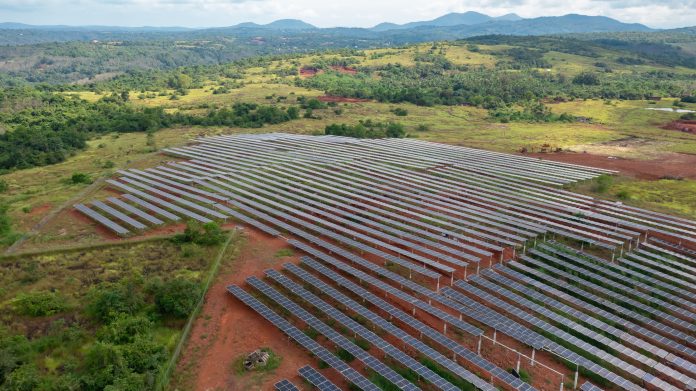Aster DM Healthcare, one of India’s leading healthcare providers, has successfully commissioned an 8.5 MW solar park in Kasargod, Kerala. Spanning 27.2 acres, this landmark project highlights Aster’s dedication to sustainability and the adoption of renewable energy.
The solar facility was developed in collaboration with U-Solar Clean Energy Solutions, a solar energy developer and EPC contractor. Completed in 18 months as a single-phase project, the park utilizes advanced mono PERC technology. It is estimated to produce around 14.03 million units (kWh) of clean energy annually and reduce carbon dioxide emissions by approximately 11,590 tonnes each year, significantly lowering the environmental footprint of Aster’s operations.
Dr. Azad Moopen, Founder and Chairman of Aster DM Healthcare, stated, “The commissioning of our large-scale solar park is a major step in our journey toward sustainable healthcare. As a key player in the healthcare sector, we understand the importance of minimizing our environmental impact while maintaining operational excellence. This initiative underscores our commitment to incorporating clean energy into our infrastructure, ensuring energy security, cost efficiency, and a reduced carbon footprint. It aligns with global sustainability goals and sets a benchmark for eco-friendly practices in healthcare.”
Aster DM Healthcare has invested ₹11.89 crores in the solar project, which is expected to deliver annual savings of ₹4 crores. The energy generated currently supports the power needs of Aster’s facilities in Calicut and Kannur.
K. R. Harinarayan, CEO of U-Solar, added, “The commissioning of this 8.5 MW group captive solar project is a significant advancement in integrating clean energy into the healthcare industry. It furthers our goal of a sustainable future while enabling Aster to lower its carbon emissions and enhance energy reliability. We are proud to have delivered Kerala’s first group captive solar project, setting a strong example for others and paving the way for the state’s renewable energy efforts.”
Looking ahead, Aster plans to replicate this model across other hospital locations, with future projects in Kerala, Karnataka, and Maharashtra expected to total around 36 MW, including the current installation. These initiatives are part of Aster’s broader strategy to develop a more sustainable and energy-efficient healthcare system that benefits both people and the planet.















